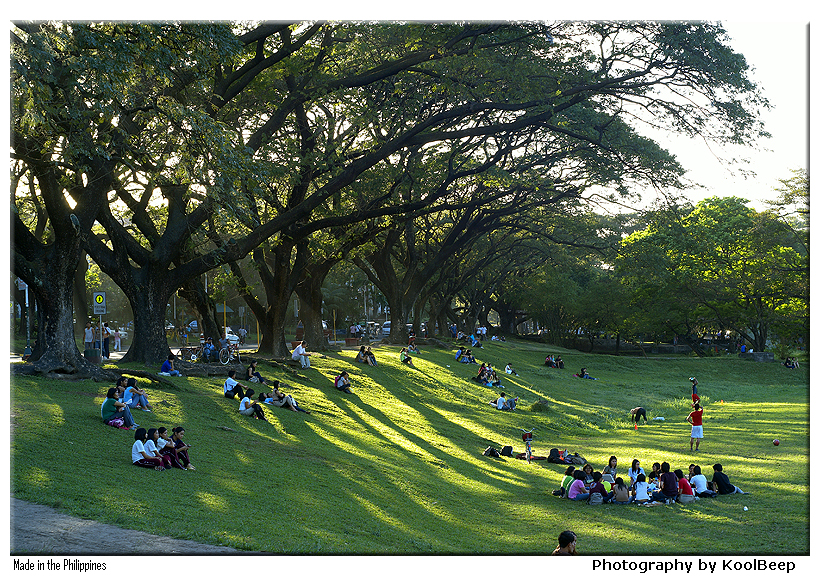- Teacher: Caroline SCHÖPF
- Teacher: Caroline SCHÖPF
- Teacher: Caroline SCHÖPF
READINGS IN SOCIOLOGY
Course Description
Readings in Sociology is a preparatory course to Sociology 200 (Thesis/Directed Research). Its goal is to enhance the capacity of the student critically review and integrate the existing theoretical and empirical literature in the area of his or her thesis interest towards eventually conceptualizing a research problem/thesis statement, and developing suitable theoretical and conceptual frameworks, and research methodology. The general teaching approach for this course is individualized. Students will be closely supervised as they work independently on their chosen research topic.
Course Goals:
· To familiarize students with the theories and research trends related to their chosen research topic;
· To enable students to build the theoretical and conceptual frameworks of their chosen research topic
· To equip students with skills that are necessary in doing a critical review and integration of literature and in completing a directed research project;
· To enable students to apply the principles of ethical research in designing a research project;
· To enable to students to become more appreciative of collaborative research work and of the role of mentoring in directed research;
Course Outcomes (CO):
Upon completing the course, students must be able to:
1) Discuss key theories, concepts, and debates related to their chosen research topic;
2) Discuss trends and methodologies in research related to their chosen research topic
3) Define a sociological research problem and research focus based on their review of literature
4) Identify a suitable theoretical framework, conceptual framework, research methodology for their chosen research topic
5) Create an ethical research design for their chosen research topic
- Teacher: Josephine Dionisio
Sociology of the Environment
Sociology as an analytical lens in the study of environmental issues and problems brings to clearer focus the social production of nature, the interaction between the natural environment and social institutions, and the role of individual and collective agents in shaping this interaction. This analytical approach is useful and easily understandable to any student who is interested and concerned with environmental issues. There are no prerequisites to taking this course, which may be taken as a cognate or as an elective in any program.
One of the basic assumptions of this course is that the causes and effects of environmental problems are not limited to natural ecological systems and processes. Rather, key environmental problems are interlinked to human activities and to the social structures that have emerged around these activities. We need to discuss the economy, politics, culture, and social institutions at different levels because environmental issues are multidimensional, and the effects of environmental problems are not confined within bounded sectors.
There are different ways of analyzing this intricate relationship between environment and society. In the first half of the semester, we will discuss the assumptions and implications of key influential perspectives on environmental problems. We will interrogate the different ways of thinking, talking about, and acting upon environmental problems, and the corresponding effects of these concepts and practices on the natural environment and on society.
Environmental problems are interlinked to one another. Our discussions in the second half of the semester will focus on tracing the interconnections of environmental problems by discussing them as part of integrated bioregional ecosystems, i.e. deforestation in upland ecosystems affect lowland agricultural systems as well as offshore marine ecosystems. We will examine development paradigms, public policies, power relations, and popular culture to understand the social causes and social impact of key environmental problems.
Key environmental problems, while lived and experienced in specific local ways, are translocal and global in character and origins. Discussions on local environmental situations will consider the historical contexts and the dynamics of national and global economic and political systems to render visible how translocal institutions and processes affect local ecological systems. We will examine how the suffering brought about by environmental crises are different in countries in the North and in the South.
An assumption of this course is that solutions and alternatives to key environmental problems may be culled from repressed indigenous knowledge systems and from local community practices which have evolved from their struggle for collective survival. Towards the end of the semester, we will investigate significant actors and institutions in the environmental movements. Their framing of issues and their formulations of sustainable development will be discussed and analyzed.

- Teacher: Melkizedek Acosta
- Teacher: Josephine Dionisio

- Teacher: Herbert Docena

- Teacher: Herbert Docena

- Teacher: Herbert Docena
